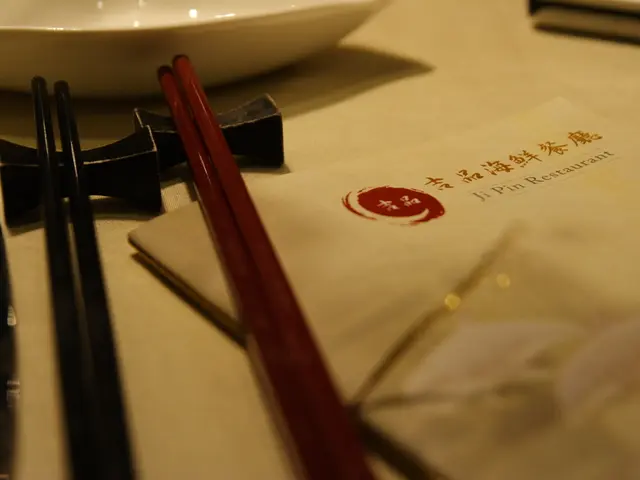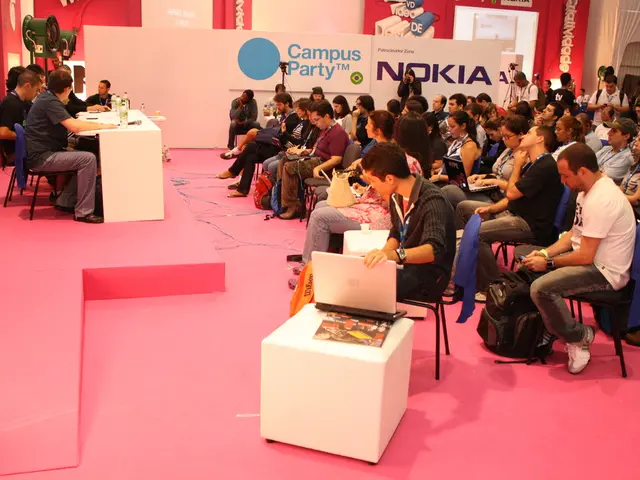Assistance provided by psychologist Tatyana Sinitska on supporting addicted combatants and the establishment of a dedicated aid center.
Chit-Chat with the Psychology Boss at the Life Space Center
We had a casual convo with the head honcho of the psychological department at the Life Space center, Tatiana Sinitskaya, as she opened the center's grand new project - a beacon of hope for those at risk or struggling with addictions, including gaming addictions, and their concerned loved ones.
Q: So, Tatiana, how did you pick the psychologists for the center's team?
A: First off, they've got a solid psychological education. Secondly, they've got some hands-on experience working with addiction, including gaming addiction. Our focus is on evidence-based methods, particularly cognitive-behavioral therapy.
Q: Is the team massive?
A: Currently, we got four psychologists on board. We'll evaluate the workflow to decide when we should expand the team. These psychologists carry a heavy load. They've got to lay the groundwork, develop methodological support, and evaluate the quality of assistance. We're crossing our fingers that our initial heroes can weather this tough initial period. Later on, we'll see how many lives this service can reach, and we'll add more team members.
Q: Are doctors in the mix too?
A: On our team right now, we've got one psychiatrist, Konstantin Aymedov. The goal is to obtain a medical license. It takes a bit of leg work to make sure everything's on the level. Once that's sorted, we'll analyze if we need additional medical professionals.
Q: Can we treat gambling addiction with meds?
A: Medications can't cure addiction on their own, but they can ease the pathological symptoms, such as severe anxiety or depression, or strong, uncontrollable cravings. When people are in a really tough state, it's hard to work with them psychologically. So we need to bring them up to a stable state first, and pharmacotherapy can help. But then it's all about the psychological work.
Q: Is group work better for initial addiction stages?
A: Group and individual therapy serve different purposes. Individual therapy dives deep into psychological traits. Group therapy is about expressing emotions, providing support, and learning that you're not alone. This is super beneficial in the early stages to develop motivation for recovery. Later on, during the supportive stage, it's important to know how to deal with relapses. So we're working with a multi-level approach, utilizing various forms of therapy.
Q: How long's the therapy? For an average case - the person hasn't burned through all their cash yet, and they haven't dedicated all their time to gaming, but the problem's taken root.
A: In our standard setup, the average duration is nine months. Addiction doesn't pop up overnight, and psychological issues don't get untangled in a snap either. It takes a lot of time for a person to see changes and learn to live with them.
Q: Are the center's services gonna be free?
A: Yes, for gamers and their families too.
Q: There's a lot of buzz about gambling addiction among military personnel these days...
A: Yeah, they're particularly vulnerable. That's my opinion, and the consensus of scientists and practicing psychologists. Military personnel deal with constant stress, with no real way to unwind - go to the movies, and so on. They're always in high-stress military situations, which is hard on the psyche, and the Phone is always there. They can always distract themselves, play, find emotions. Many may not have full-blown addiction yet, but they're at risk. Of course, we're planning to support these souls and provide assistance.
Q: How will we help them if they're on the frontline?
A: We're planning to develop remote help methods, like online support groups, trainings, and materials to help cope with stress better. It won't solve the existing problem, but it'll provide support to those at risk.
- Tatiana Sinitskaya, the psychology boss at the Life Space Center, mentioned that the center's team is composed of psychologists who have a solid psychological education and hands-on experience in addiction, including gaming addiction.
- The focus of the team is on evidence-based methods, such as cognitive-behavioral therapy, and there are currently four psychologists on board, with plans to expand the team if necessary.
- One psychiatrist, Konstantin Aymedov, is also part of the team, and more medical professionals may be added once the center obtains a medical license.
- Medications can help ease the symptoms of gambling addiction, such as severe anxiety or depression, but they cannot cure addiction on their own and are used to bring the individual up to a stable state before beginning psychological work.
- Both group and individual therapy are important in treating addiction, with group therapy being beneficial in the early stages to develop motivation for recovery.
- The average duration of therapy is nine months, and the center's services will be free for gamers and their families.
- The center is planning to support military personnel who are vulnerable to gambling addiction, as they deal with constant stress and have easy access to distractions such as gambling on their phones.
- Remote help methods, such as online support groups, trainings, and materials to help cope with stress, will be developed to support military personnel who are at risk of developing gambling addiction while on the frontline.








